7 Ways to Boost Collagen: Dermatologist-Approved Secrets
This post may contain affiliate links. That means that if you click on a link and purchase something I recommend, I will receive a small commission at no extra cost to you. As an Amazon Associate, I earn from qualifying purchases. This helps keep my website up and running and is very appreciated. Thank you for your support! Disclaimer
Good morning, everyone! Today, we’re diving into the 7 ways to boost collagen levels in your skin without getting caught up in trendy gimmicks powered by TikTok influencers or marketing traps by cosmetic brands.
Collagen is one of those ingredients that has now skyrocketed across the beauty industry. With billions of dollars behind this particular ingredient, many different companies are trying to cash in on your insecurity.
But do collagen powders, pills, or creams truly deliver on their promises? The short answer: No, not really! We need more scientific evidence to fully support their efficacy. Now, before we delve into the details and practical steps you can take, let’s first understand what collagen actually is.
If you don’t have time to read this post right now, why not save it for later?
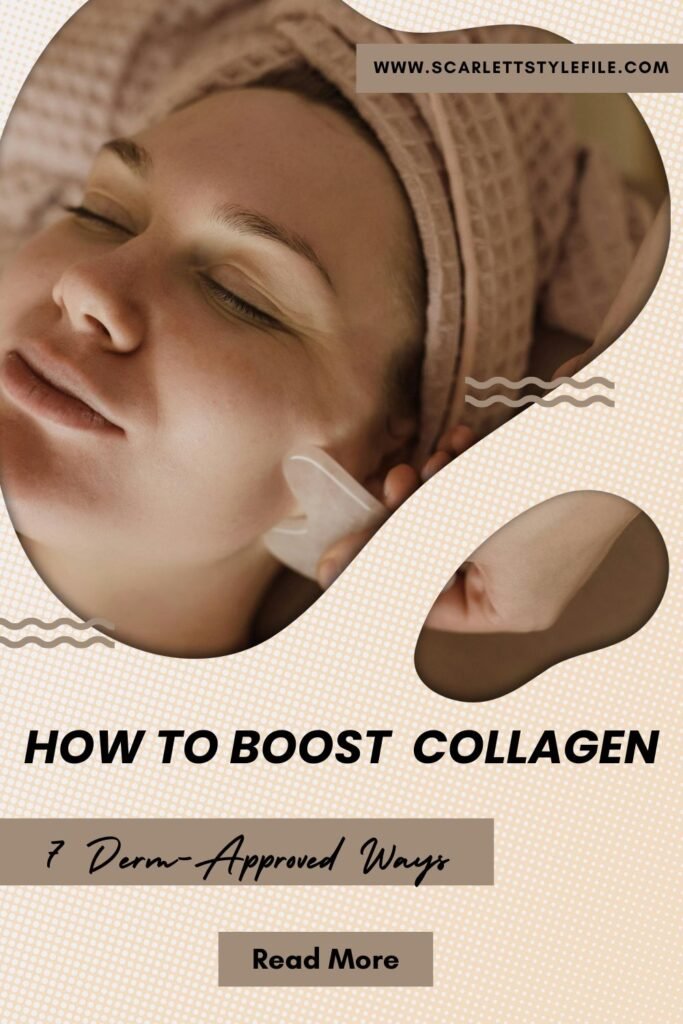
what is collagen?
Collagen is a protein that’s super important in your body, making up a good chunk of it, like 25 to 35%. Its main job is to keep things together, acting like glue for our cells. This helps our body parts stretch and shrink without falling apart. It’s what keeps our skin springy and our bones and joints strong. Collagen isn’t just in one place; it’s all over the body—in our skin, bones, joints, and even our eyeballs.
But here’s the thing: not all collagen is the same. When someone tells me to take some collagen powder, I’m like, “Hold on, what kind of collagen is it?” There are loads of types, like 28 of them. The main ones are Type 1, 2, and 3. Type 1 and 3 are typically found together, with Type 1 in our skin, bones, and ligaments, while Type 3 is in our blood vessels, often combined with our skin and bones.
Type 2 collagen, on the other hand, is commonly found in joint replacements and provides our joints with shock-absorbing properties, making them malleable. So, it’s essential to know what type of collagen you’re replenishing in your body for maximum effectiveness.
what causes collagen to decline in our body?
What makes collagen decrease? Well, there are six main reasons behind it, starting with the most obvious:
Aging:
Aging is the most obvious reason when it comes to cllageen rates drop , But here’s the kicker: most people start noticing collagen loss in their late 30s or 40s and think they need to act then. However, the ugly reality is, you start to lose one percent of your collagen starting in your mid-20s, and it goes down after that. What I find interesting is that today’syounger generation might notice aging effects sooner because they’re looking at themselves so often in pictures, videos, cameras, reels, and TikToks, etc. They’re seeing those changes happen in front of their eyes.
Whereas in the past, when all of this didn’t exist, everybody was just happy-go-lucky in their 20s and early 30s because they didn’t see the effects. It tends to hit you boom over the course of a month, and even overnight in your late 30s, early 40s. We can talk about the Three Peaks of Aging in a separate blog in the future, but aging is definitely the major contributor to collagen decline
sun exposure:
The second factor, which might seem obvious but is worth noting (and don’t roll your eyes), is sun exposure. Now, I’m not here to instill fear of the sun in you; that’s not my aim. However, if concerns about skin cancer don’t bother you, then let this part of the article just kind of tickle your vanity’s sake because when you’re exposed to UV radiation for extended periods, you’re radiating your skin. Essentially, you’re cooking your skin.
UV rays trigger something called Matrix metalloproteinase (MMPs) in your tissue. MMPs are enzymes that break down protein in your skin’s structure. This breakdown of protein leads to a decrease in collagen, which in turn leads to premature lines, wrinkles, and saggy skin. I don’t have any person in mind to help you paint a picture of what sun exposure can do to your skin, but think of the stereotypical image of someone who’s spent years tanning without protection—their skin ends up looking like well-worn leather. Even if they’re only in their late 40s or 50s, their skin tells a tale of what excessive sun exposure can do over time. So, that’s the second factor to consider.
lifestyle:
Next up is lifestyle. (Now, again, don’t shoot the messenger), I won’t nag you with a list of “don’ts,” (Don’t drink, don’t eat sugar, don’t do this) but everything in moderation is key. Smoking—I am here to preach against—is a big no no and one of the most harmful things that you could do for your skin. You’re limiting blood flow to your skin, making it look dull and yellowish over time. Plus, it speeds up the breakdown of collagen, the stuff that keeps your skin firm and youthful.
Drinking too much alcohol is also a collagen killer because it can lead to certain nutritional deficiencies, and alcohol equals sugar. And a lot of sugar over time can lead to inflammation and breaking down of your collagen. But again I’m not saying you can’t enjoy a treat now and then everything in moderation is good—two pieces of cake a week won’t hurt. But if you eat cake with every meal of every day, obviously, that is not a good thing. And when it comes to alcohol, again it’s all about timing. If you’re reaching for a drink before the sun sets, you might want to rethink your habits. Remember, moderation is key.
hormonal changes:
Now, the fourth thing (hormonal changes.) is an important factor that I will do an article on sometime soon.
Menopause is a bitch. If you’ve ever had a baby, the postpartum period is like menopause on steroids. In fact, During this time, your body goes through hormonal changes at a faster rate that you kind of have a preview of what to expect: thinning hair, dry skin, and a dull complexion. This happens because estrogen, a hormone that helps produce collagen and keep your skin looking healthy, decreases rapidly during menopause. It’s not the most enjoyable experience, but it’s a natural part of life. The key is to be prepared and know how to take care of your skin through these changes.
poor diet and nutritional deficiencies:
Another reason for collagen imbalance is poor diet and nutritional deficiencies. In fact, certain foods when we just don’t have enough of them can lead to actual syndromes like vitamin C leading to scurvy, and vitamin C is an ingredient that is needed in collagen production. Similarly, a shortage of zinc, whether due to excessive alcohol intake or a natural deficiency like acrodermatitis enteropathica, can disrupt collagen balance and also cause copper deficiencies. So, having a well-balanced diet with all of these different ingredients along with amino acids and proteins can give your skin a best chance of looking more plump and elastic over time.
chronic health conditions:
And lastly chronic health conditions such as autoimmune disorders, diabetes, and genetic disorders like Ehlers-Danlos syndrome or Marfan syndrome and people who are very, very tall can impact your collagen production and integrity. So, all of that can affect your collagen as you age.
do collagen supplements work?
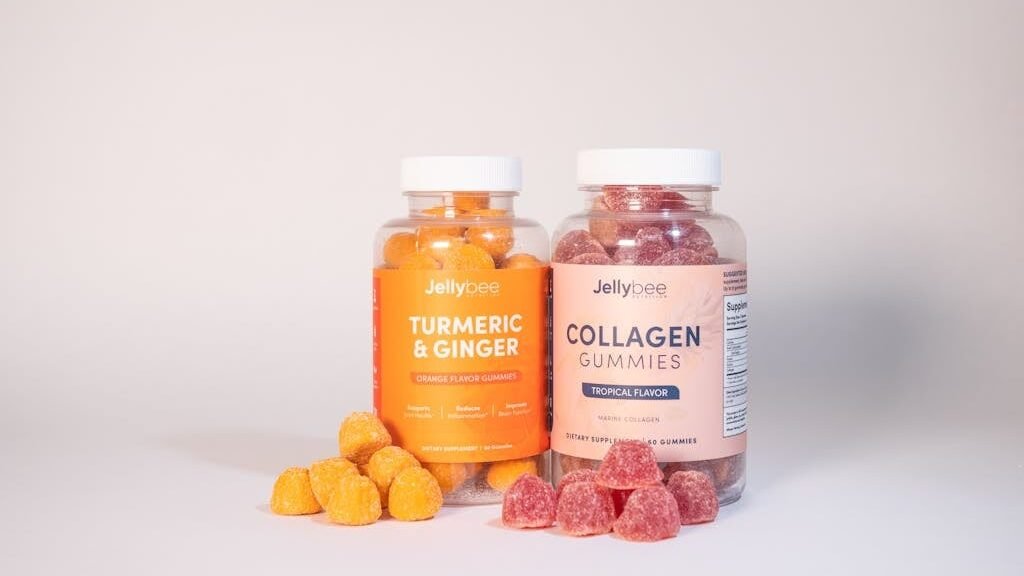
So, let’s tackle the big question of the hour : are collagen supplements really effective? Well, the scientific evidence backing up their claims is pretty thin. Most studies done on them aren’t very thorough; they usually involve only a small number of people, which doesn’t give us a clear picture of how they’d work for everyone. Plus, many of these studies don’t have a proper comparison between people who use the supplements and those who don’t, making it hard to tell if any changes are actually because of the collagen or just due to people thinking they’re working (a.k.a. the placebo effect).
And here’s the kicker: a lot of these studies are funded by the companies selling the supplements. So, obviously, what are they going to say? “Our product is a scam shit don’t buy it”? No, they’re probably going to tell you, “We saw a change in wrinkles.” But is the “change in wrinkles in a real way” in the room with us ? Nah I don’t think so , So this is something that you kind of have to take with a grain of salt becasue there’s a bit of bias there.
There was this one study published a few years back in the Journal of Drugs of Dermatology that had an interesting idea. It suggested that when you take collagen orally, your body breaks it down into smaller parts called amino acids, which might trigger your body into thinking you have a wound or some kind of imbalance that needs your own body’s collagen to be revved up. But it’s still not proven, and we need more solid research to say for sure.
So, here’s the deal with collagen: it’s a protein made up of amino acids. When you eat it, your body breaks it down, and those pieces might end up being used as building blocks for different proteins in your body, possibly even in your skin. But we’re not totally sure how much of it actually ends up there.
Think of it like putting too much gas in a car – it might not make the engine run better and could even cause damage in the long run. We don’t know yet if there are any negative effects of over-consuming collagen on our bodies and what that could do. So again, the bottom line is moderation. I don’t know about you, but I’d rather not be a test subject for this one.
7 ways to boost collagen:
So, what are the seven ways that you can boost your own collagen production that are not fabricated in some kind of factory, and that you can actually do today to start helping yourself?
Number one: collagen-boosting foods

Now, the protein powders and collagen powders are great, but they don’t fulfill all your calorie needs for the day. You still need to eat regular meals. So, let’s talk about some foods that can do double duty, shall we?
You need foods with antioxidants, foods that are rich in vitamin C, foods rich in omega-3 fatty acids, and protein. So, you’re talking about salmon, nuts, seeds, berries (like raspberries, blackberries, strawberries), all rich in antioxidants. Leafy greens like spinach, collard greens, and kale are excellent choices as well, along with citrus fruits because of their vitamin C content. All of these are collagen-boosting foods that have been proven over time.
Bone broth is a newer trend that’s gaining attention and it’s worth trying or looking into if you’re aiming to boost your own collagen naturally. Bone broth is rich in collagen-building amino acids. but it’s not for everyone – personally, I’m not a fan of the taste, so I skip it. But I make sure to include everything else in my diet.
When planning your diet, think of it like your skincare routine – consider it on a weekly basis rather than stressing over every single day because trust me it’ll only make the process less enjoyable. So, if you’re thinking on a weekly basis, aim to have salmon once or twice a week, citrus fruits once or twice a week, and leafy greens once or twice a week. By the end of the week, you’ll have covered all your bases and be ahead of the game.
Number two: sun protection
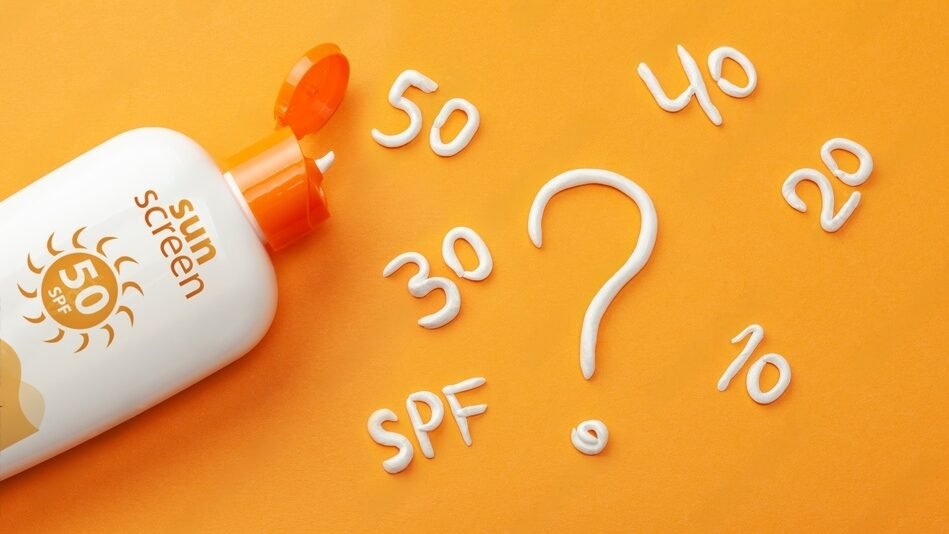
Obviously, if you go to a pizza shop, you’re going to get pizza. Similarly, if you visit a dermatologist, you’re going to receive sun protection advice. Sun protection is key because UV rays increase MMPs that break down your collagen, not to mention the risk of skin cancer. Therefore, using sunscreen and reapplying it regularly is crucial. If you struggle to remember or dislike the feel of sunscreen, opt for UV-protective clothing such as a visor with UPF protection or a lightweight, breathable long-sleeve shirt. These measures will safeguard your face, neck, and chest from the sun’s harmful effects, ensuring your skin doesn’t prematurely age.
Number three: collagen boosting ingredients
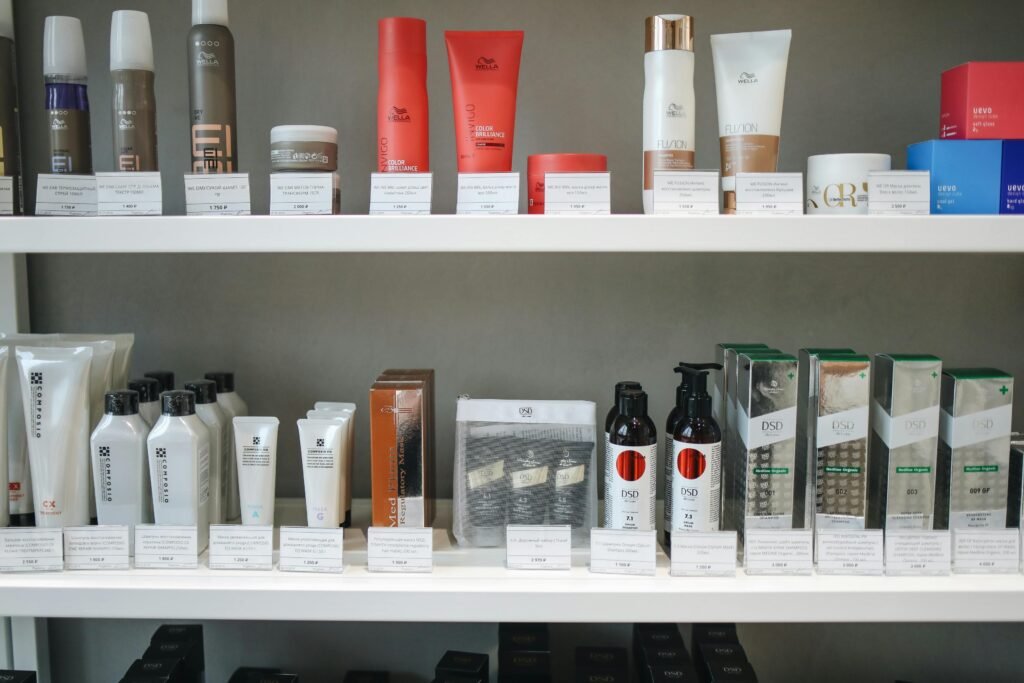
Number three is all about ingredients that help boost collagen. Collagen alone in a cream is not going to help, and I received some backlash on a skincare forum when I criticized collagen supplements I was like, “These collagen supplements are full of crap,” and people were like, “Well It makes my skin feel good.”
Well forgive me to state the obvious Samantha of course it’s going to make your skin feel good because it’s coming in the form of a moisturizer that might have humectants in there that might give the appearance of more bounce and dewiness to your skin. But the collagen in the cream is doing nothing because it’s too big to get absorbed into your skin.
However, there are ingredients that can help promote collagen production. First up, the star player: retinols. Retinols have stood the test of time in stimulating collagen production without thinning your skin; whoever claim the opposite needs their medical degree taken away from them and given to me instead. And they are not going to make you look worse in the long run.
However, there is a little red flag with retinols; they can be irritating. So if retinols are irritating to you and you just can’t tolerate them, I got other ingredients that you could use in your routine to help yourself. Number two being peptides. Peptides are short chains of amino acids that are also the building blocks of proteins. One of the best peptides on the market is Matrixyl, also known as palmitoyl pentapeptide-4. It has been shown to stimulate collagen synthesis and help improve the appearance of fine lines and wrinkles.
PS: I'll drop some product recommendations at the end of this article that have this particular peptides in them. I don't want to overload you with product talk, though. My main goal here is to make sure you get some solid info and learn a bunch. So stick around for that! 😊
Another type of peptide that’s getting a lot of attention lately is copper peptides. Copper peptides are a mix of copper and peptides. Copper is important for making collagen, and copper peptides are beneficial because they aid in healing and also have antioxidant properties. The big question people have about copper peptides is whether you can use them together with the next ingredient on our list, vitamin C.
Number four: Antioxidants
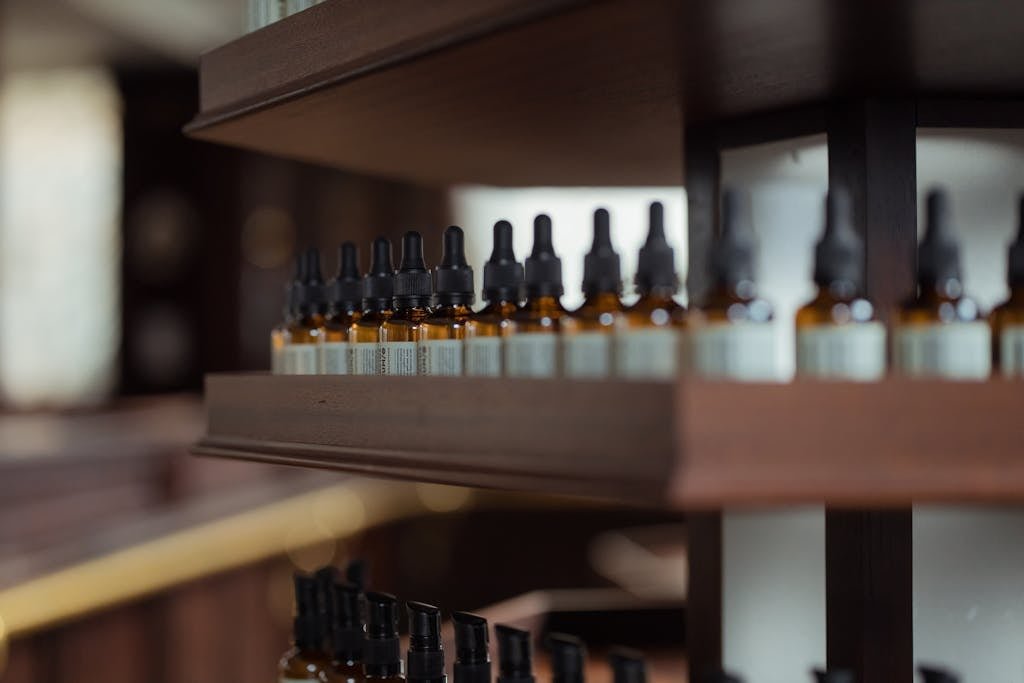
If you’re using the pure vitamin C, also known as ascorbic acid, I recommend using copper peptides at night and vitamin C in the morning. However, if you’re using an ester form of vitamin C, you can use them both together twice daily because this form is less likely to get oxidized. Therefore, it can be combined beautifully with copper peptides to work well together.
Related : Unveiling the Power of Vitamin C: Your Ultimate Guide to Glowing Skin
Vitamin C is one of the building blocks of antioxidants needed in the production of collagen. It also helps to minimize the breakdown of collagen by free radicals, which leads me to other antioxidants like vitamin E, niacinamide, and even coenzyme Q10. I’ve spoken about vitamin E and niacinamide at length before, but I’ve never really talked about coenzyme Q10.
Coenzyme Q10 is a very important ingredient when you’re talking about antioxidants, energy production, and enzyme activation. You can find it in products like Eucerin Q10 Anti-Wrinkle Sensitive Skin Unscented Face Cream, designed specifically to combat wrinkles. It is one of those cofactors needed in the production of collagen to minimize the breakdown of collagen and to increase collagen synthesis by acting as a coenzyme.
It is something that helps boost the production of collagen by creating ATP, which is energy in the cell, and by activating other enzymes to wake up in the collagen production lineup. So, it’s a great ingredient to add.
Number five: microneedling

You can try microneedling at home, but I’d advise caution. Personally, I prefer getting microneedling treatments at my fiancé’s office. There, I feel safer, and the procedure can penetrate deeper in a controlled setting. He also suggests this approach, despite being able to do it at home.
The reason is, not all at-home microneedling devices are the same. You need to consider the type of metal used, the depth of the needles, and how frequently you’re doing it. If you’re doing it at home, you really have to go low and slow and be more conservative. You don’t want to accidentally tear your skin or damage it by overdoing it. so yeah just go to the damn office and save yourself the hassle.
Number six: red light therapy
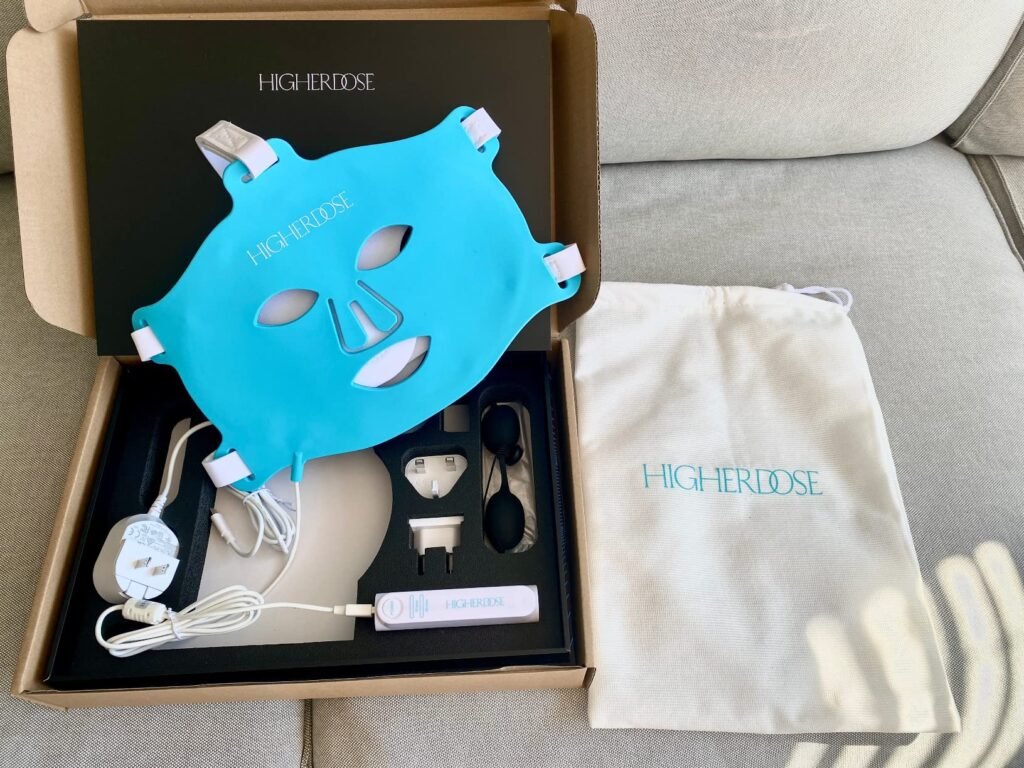
Red light therapy is a great way to boost collagen production. If you’re unfamiliar with it, think of it as a light version of coenzyme Q10. These red lights, also called LED lights, work by kickstarting ATP production in your cells’ energy factories, known as mitochondria. More ATP means more energy for your body to make collagen, leading to healthier skin.
Plus, red light therapy helps to reduce inflammation and soothe irritated skin. Over time, it really pays off by ramping up collagen production and triggering growth factors like transforming growth factor beta (TGF beta), which is crucial for tissue repair and collagen synthesis. It even gets those fibroblasts going, which are responsible for producing “baby collagen,” thus giving your cells the energy they need for repair and renewal.
Number seven: lifestyle
And lastly, let’s talk about lifestyle. Again, I’m not going to tell you to go become a nun; it’s not my goal. I could never do it, and honestly, I would rather be happy than miserable. But lifestyle, as a whole, should always be balanced. Anything in extreme—whether it is any sort of view, which we’re not going to get into, or any sort of habit, which we’re also not going to get into—anything in moderation is fine. One or two fast food a month? You’re not gonna disintegrate. One or two pieces of cake? You’ll be fine, as long as you are incorporating all the other good stuff.
So, the other two things you should do (and I need to work better at this) are working out—any sort of cardiovascular or strength training, allowing your blood flow to be better regulated in your body—and sleep. I have to take my own advice here because my job often has me flying at night , which leads me to sleep only three to four hours a night. But sleeping more regularly, minimizing the amount of stress (easier said than done), and working out one to three times a week at least can all help boost your own collagen production as well.
Products with Peptides recommendations
Innbeauty Project 10 + 10 More-Sturizer Am & Pm Moisturizer

Allies of Skin Peptides & Antioxidants Firming Daily Treatment
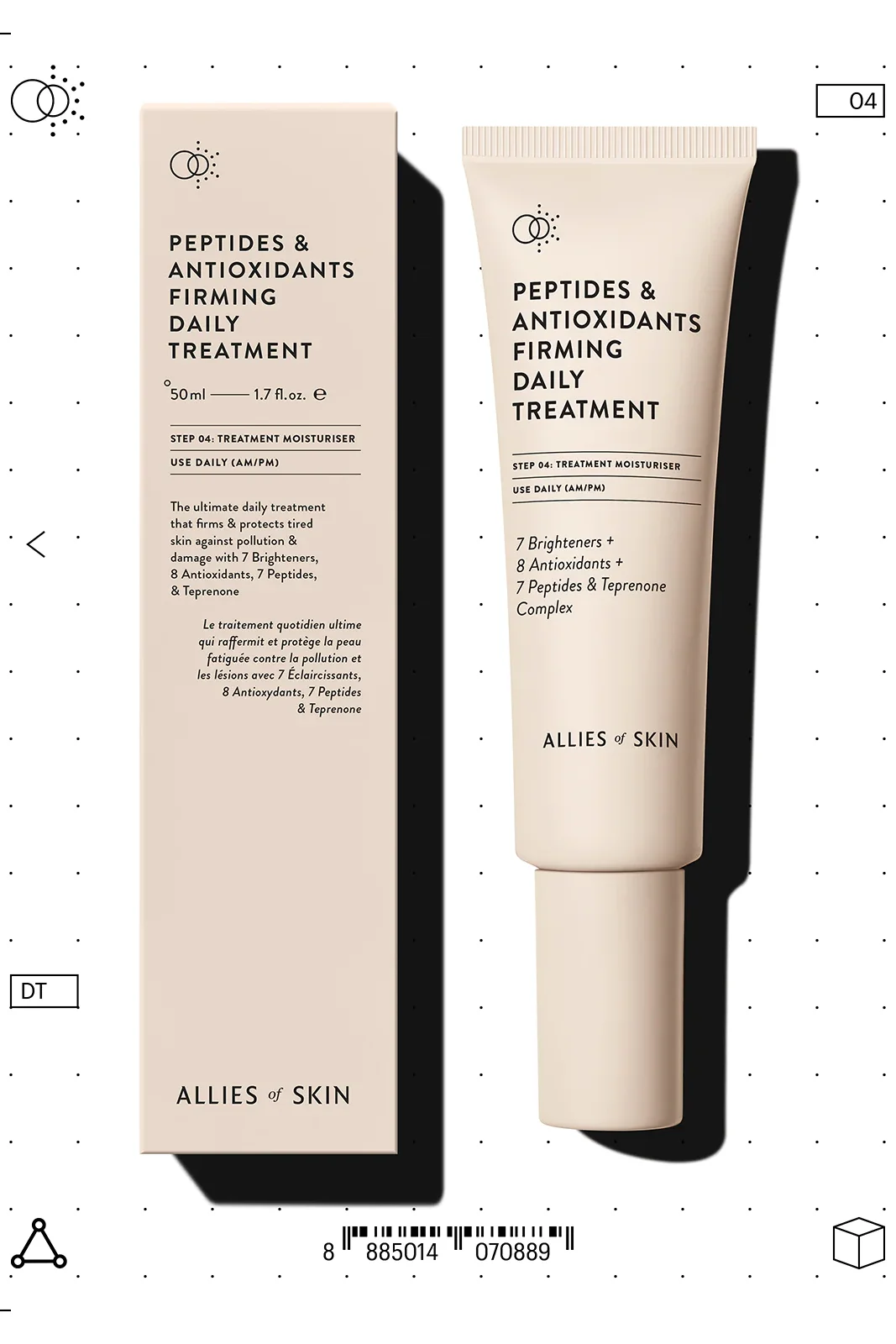
The Bottom Line
So, I hope this article was helpful and now you kinda understand what collagen is and how you can help yourself before getting swayed by misleading marketing tactics.
My readers’ feedback matters to me, so if you have any questions, please comment below.

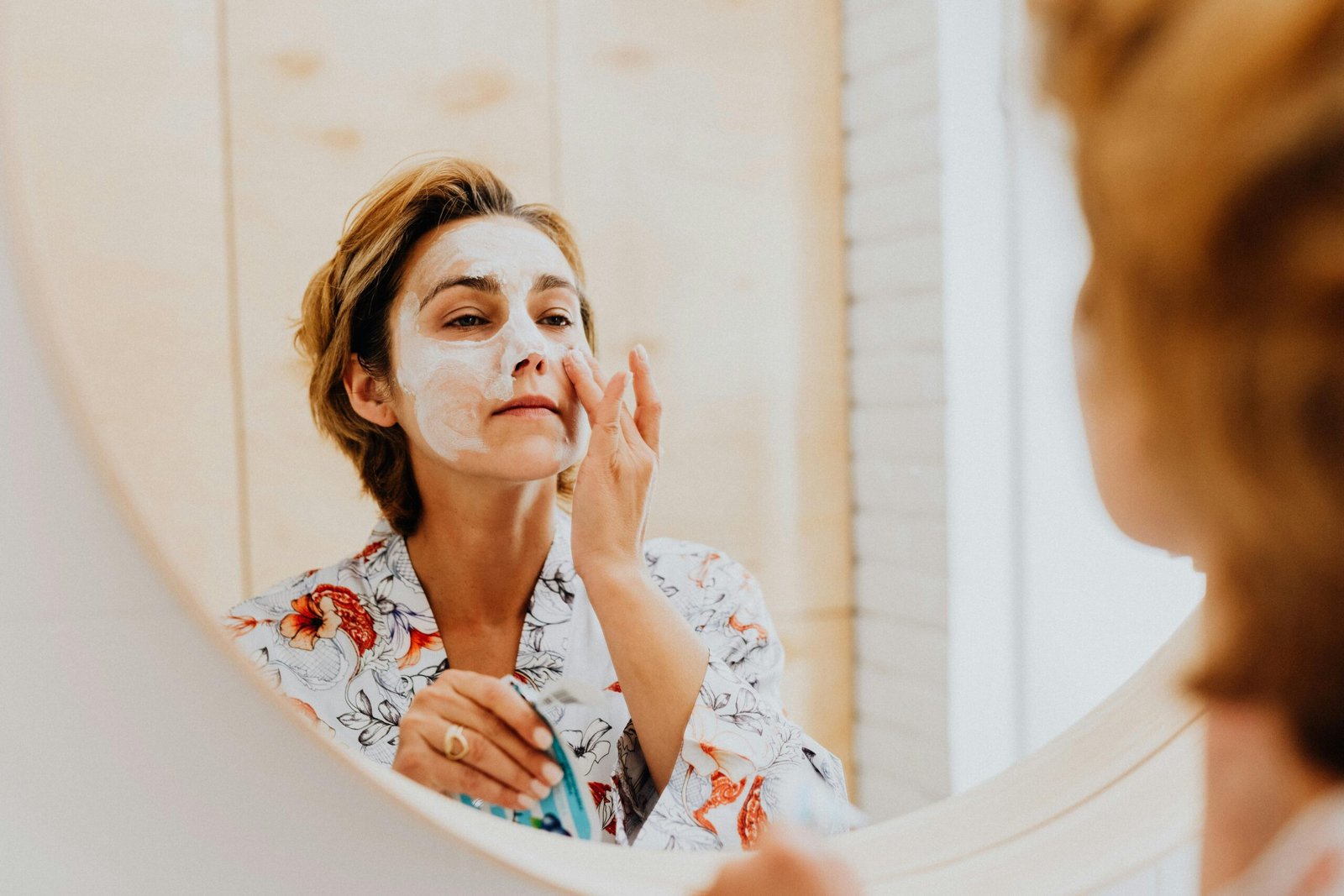



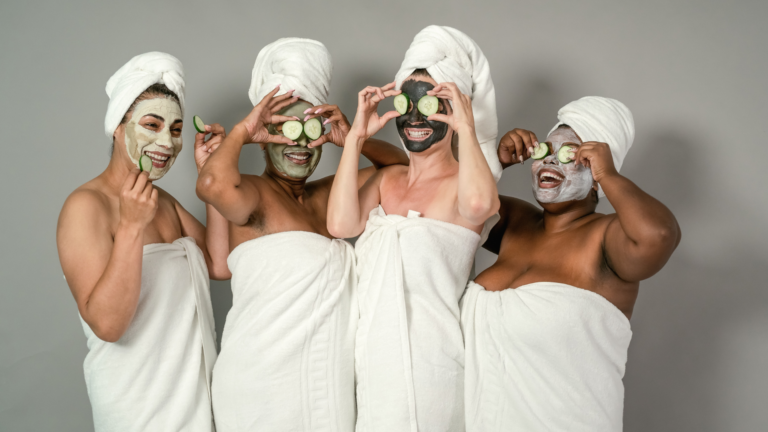


2 Comments